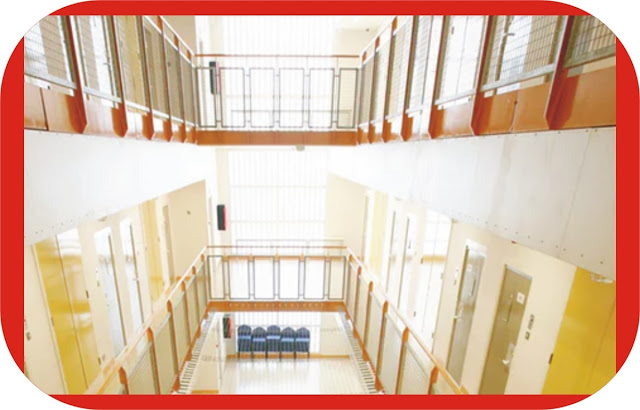A teenager from Afghanistan has pledged to murder himself in
a dentention facility in a confinement close to Gatwick air terminal instead of
be coercively deported back to Afghanistan, where he says he will be
slaughtered by the Taliban.
Idress Wazeer, 18, has twice endeavoured to take his own
particular life since being confined by the Home Office in Brook House immigration
evacuation centre a month ago and told that he would be coercively expelled
from the UK whenever in within 30 days.
Wazeer touched base in the UK when he was 14, in the wake of
escaping oppression by the Taliban, and guaranteed refuge. He says the Taliban
assaulted him and shot him in the leg, leaving an assortment of scars on his
body, and that his family were slaughtered by the Taliban in light of work his
sibling accomplished for a non-governmental organisation (NGO) objected to by
the Taliban.
But the Home Office authorities question his age and say he
was 16 when he landed in the UK.
Wazeer said: “I am very scared about being sent back to
Afghanistan. I am determined to kill myself rather than be forced back to my
country. The Taliban killed my mum, my dad and my brother and I’m not going to
let them kill me, too.”
He included: “I’m so depressed that I can’t eat and can’t
sleep. I’m very frightened about what’s going to happen to me. I’m too young to
deal with all this.”
He first endeavoured to murder himself was on Christmas Eve
while in his stay with kindred prisoner Michele Terzaghi, an Italian.
The caution was which brought medical aid to him. He was
then taken to a part of the wing called the care and partition room where he
was kept under consistent supervision for 24 hours before being discharged back
to the room he occupies with Terzaghi.
He made a moment endeavor on 30 December, yet again Terzaghi
mediated. Again Wazeer was taken to the care and division space for 24 hours.
Terzaghi communicated worry about Wazeer's welfare and said
he feels damaged from seeing the two endeavours he made to take his life.
“I was frozen with fear when I saw Idress trying to [kill]
himself. I was pressing the emergency buzzer and kept thinking to myself: ‘What
happens if he dies now?’ This guy is absolutely petrified. He has bullet wounds
on his leg from where the Taliban shot him. He considers himself to be British
and it’s very overwhelming for him to be taken back to somewhere he considers
to be hell.”
Wazeer's better half, 20, who requested not be named,
additionally communicated worry about him. "I have known Idress for quite
a long time," she said. "He is extremely defensive of his companions
and we are exceptionally defensive of him. He has said to me that 100% he will
execute himself instead of backpedal to Afghanistan."
Wazeer asked for a rule 35 report to be done to evaluate
regardless of whether he ought to be confined. Survivors of torment are not
routinely expected to be confined and rule 35 reports are intended to recognize
the most defenceless prisoners.
The Home Office dismisses his rule 35 report. In any case,
these reports have been scrutinized as blemished by a scope of individuals and
associations including the high court judge Mr Justice Ouseley, who said the
reports are not "the effective safeguards they are supposed to be".
The deficiencies of these reports have additionally been scrutinized by the
home affiares select advisory group and the UN council against torment.
G4S has the agreement to run Brook House. Ben Saunders,
chief for Gatwick immigration expulsion focuses, said: “Our team works
tirelessly to keep safe those in our care and the most recent report from
independent monitors recognised the good work done to support distressed and
vulnerable detainees. In this case, on-site healthcare teams provided medical
attention and appropriate safeguarding support arrangements were put in place.”
Theresa Schleicher, casework chief for Medical Justice, a
philanthropy that attempts to ensure the strength of individuals in
confinement, said “We are regularly contacted by vulnerable detainees whose
mental health is deteriorating in detention and who are not identified and not
released due to ineffective safeguards.
“We are particularly concerned about the new practice of
giving ‘open’ notices of removal as has happened in this case where a detainee
can be forcibly returned without notice any day during a three-month period.
This makes it increasingly difficult for legal representatives and NGOs like us
to plan the work we need to do on detainees’ cases.”
According a Home Office spokesman: “We do not routinely
comment on individual cases.”











No comments:
Write comments